Medical Escort Services: What They Are and Who Needs Them
When you need help getting to a doctor’s appointment, airport, or hospital—and you don’t feel safe going alone—you’re looking at medical escort services, a support system that provides safe, non-judgmental transportation and assistance for people who face barriers to care. Also known as patient transport services, these aren’t just for the elderly or disabled. They’re used by sex workers avoiding hostile clinics, travelers with complex visa needs, and people recovering from trauma who need someone to walk them through the system. This isn’t about luxury. It’s about survival.
Sex worker healthcare, the specific medical support tailored for people in the sex industry. Also known as sex worker-friendly care, it’s not a luxury—it’s a necessity. Many clinics refuse treatment, misdiagnose STIs, or report clients to police. That’s why some turn to escorts trained in medical navigation: they help you find providers who won’t judge you, know how to handle PrEP and HIV testing discreetly, and can even accompany you to avoid being singled out. These services don’t replace doctors—they make sure you get to one safely. Meanwhile, tour escort services, professional guides who manage logistics for travelers in unfamiliar places. Also known as travel companions, they’re not just about sightseeing. They handle airport meet-and-greets, language barriers, hotel check-ins, and emergencies. For someone with a visa issue, a medical condition, or just zero trust in local systems, a tour escort becomes a lifeline. These two worlds—medical and travel escorting—overlap more than you think. Both deal with people who are vulnerable, isolated, or pushed to the edges of systems that aren’t built for them.
You won’t find medical escort services listed on NHS websites or in hospital brochures. That’s because they’re mostly informal, peer-led, or privately arranged. But they exist. A sex worker in Manchester uses a safety app to request a trusted escort to her STI clinic. A group of retirees from Canada hires a tour escort to manage their Dubai visa paperwork and get them past customs without stress. A trans patient in London books a ride with someone who understands gender-affirming care protocols. These aren’t rare cases—they’re everyday realities for people who can’t rely on traditional systems.
What ties these stories together? Control. The ability to choose who you trust, how you’re treated, and when you’re safe. Whether you’re dealing with a hospital waiting room, a foreign airport, or a police checkpoint, having someone with you who knows the rules—and how to bend them without breaking them—changes everything. The posts below give you real tools: how to find safe providers, what to ask before booking, how to document incidents if things go wrong, and where to turn when no one else will help. This isn’t theoretical. It’s what people are doing right now to stay alive and get the care they need.
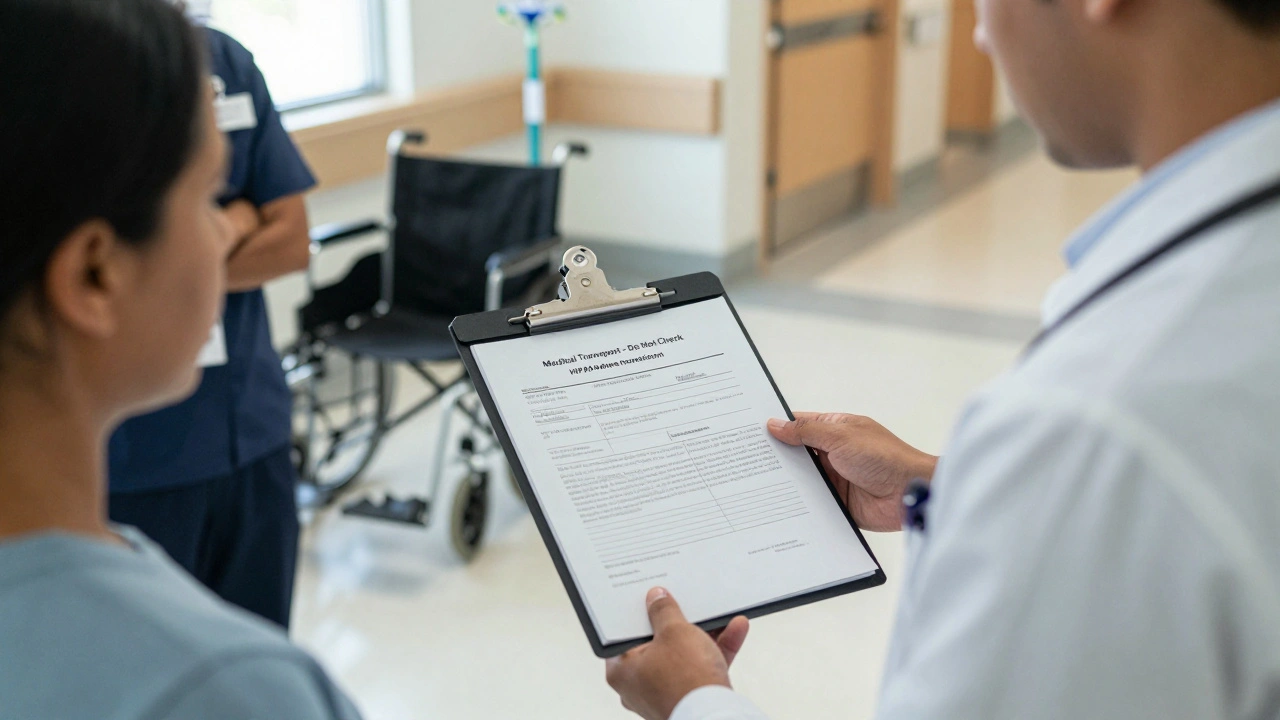
- Dec, 6 2025
- 0 Comments
Documentation and Consent Forms for Medical Escort Services: What to Prepare
Learn exactly what documentation and consent forms are required for medical escort services, including legal requirements, international rules, and how to avoid delays that can put patients at risk.
read more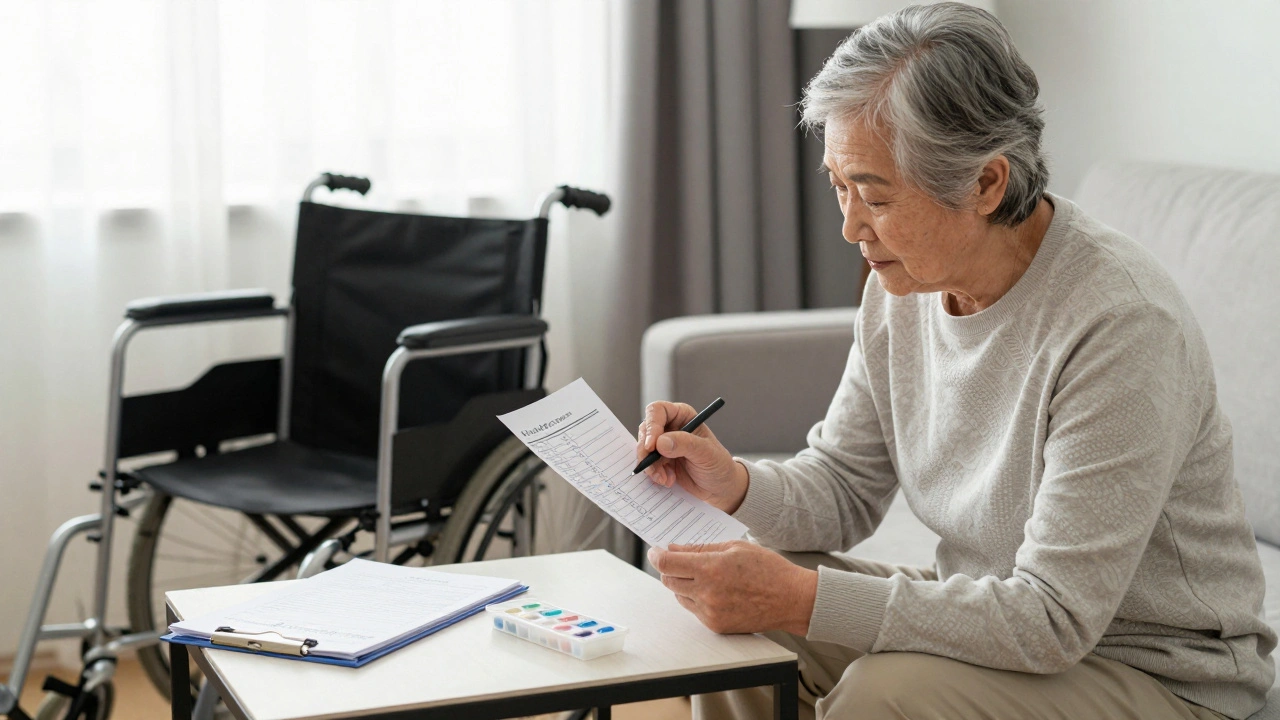
- Dec, 4 2025
- 0 Comments
Pre-Appointment Checklist for Patients Using Medical Escort Services
A practical pre-appointment checklist for patients using medical escort services to ensure safe, stress-free transportation to medical visits. Covers medications, documents, mobility, communication, and backup plans.
read more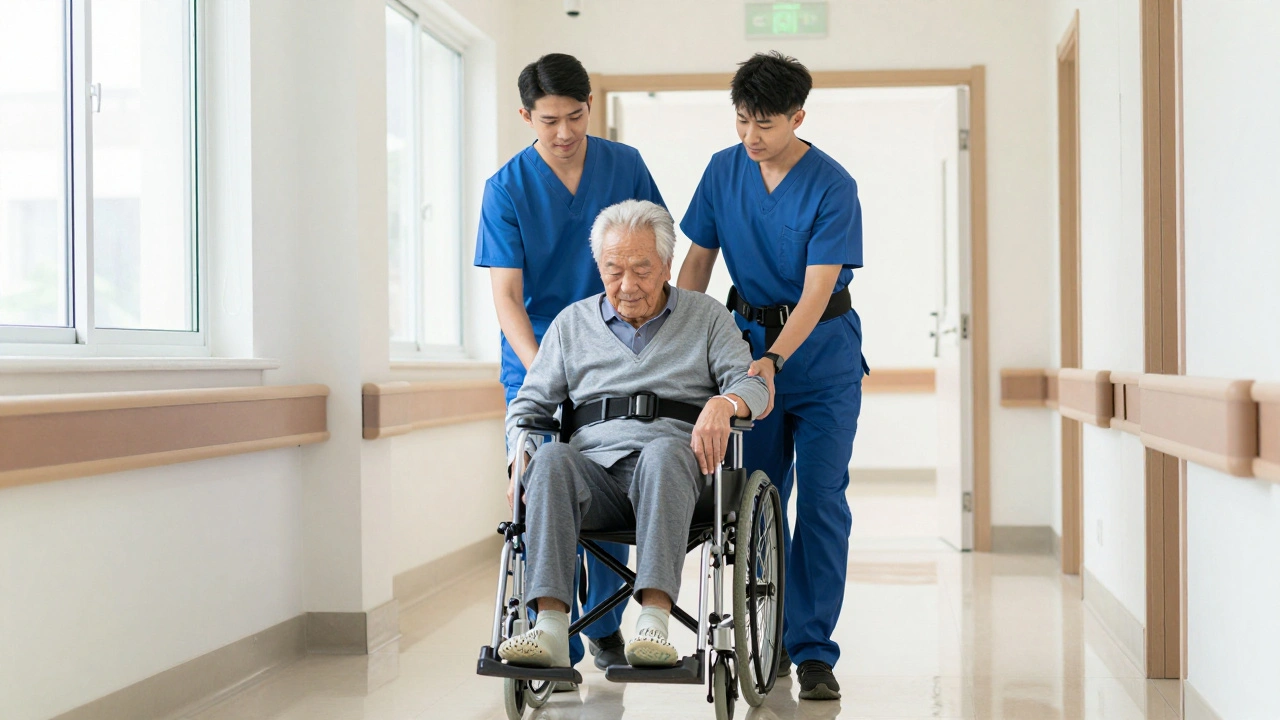
- Dec, 2 2025
- 0 Comments
Fall Risk Patients: Safety Protocols Used by Medical Escort Services
Medical escort services use proven safety protocols to prevent falls in high-risk patients during transport. Learn how trained teams assess risk, use equipment, and follow steps to keep elderly and mobility-impaired individuals safe.
read more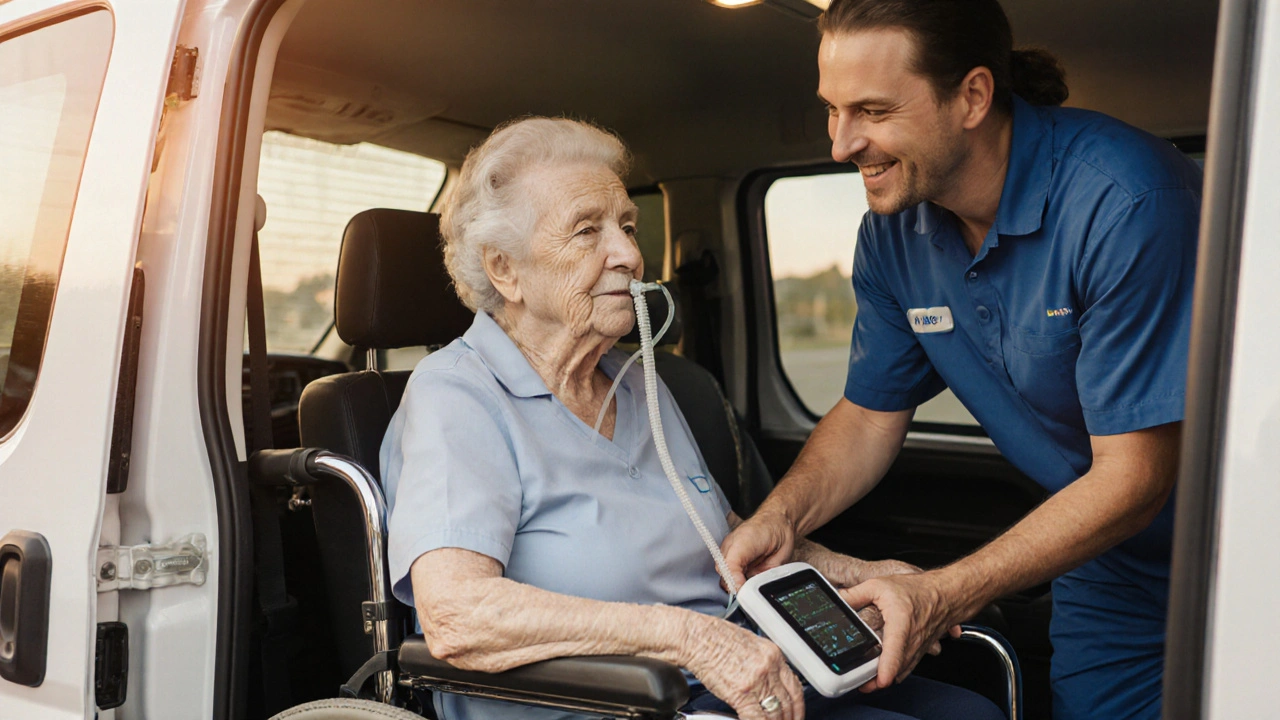
- Nov, 30 2025
- 0 Comments
What Do Medical Escort Services Include for Senior Patients?
Medical escort services provide safe, trained transport for seniors with chronic conditions, including medication help, vital sign monitoring, and mobility support during non-emergency medical trips.
read more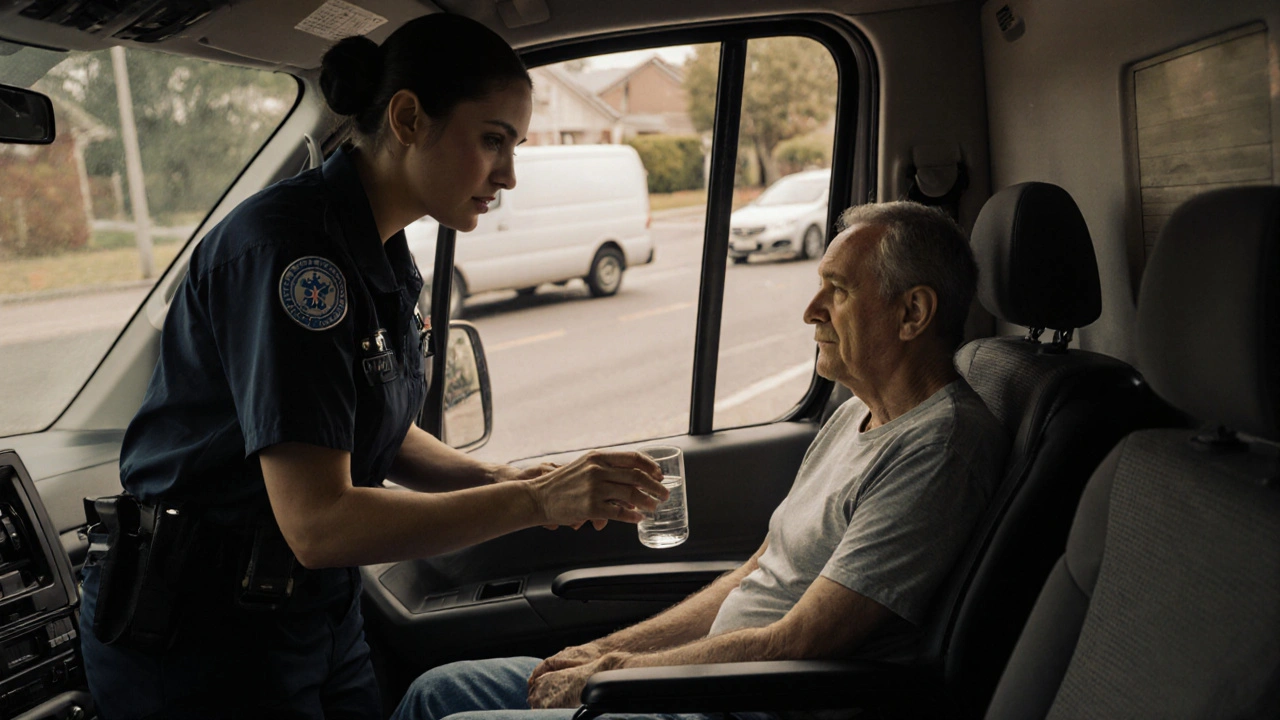
- Nov, 28 2025
- 0 Comments
Mental Health Appointments: How Medical Escort Services Provide Critical Support
Medical escort services help people with mental health conditions get to therapy appointments safely and comfortably. Trained staff provide calm, reliable transport for those who struggle with anxiety, trauma, or mobility issues - making treatment possible.
read more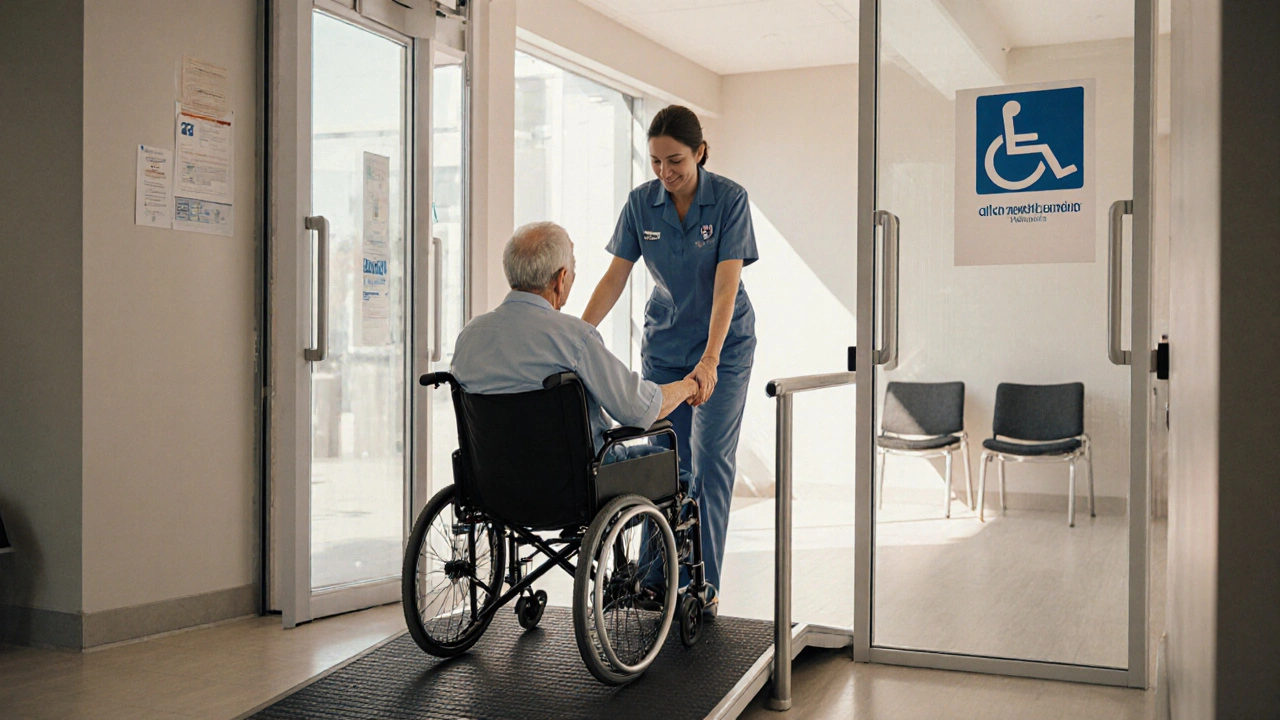
- Nov, 27 2025
- 0 Comments
Wheelchair Assistance: How Medical Escort Services Help Patients Move Safely at Clinics
Medical escort services provide trained support for wheelchair users and others with mobility challenges to safely reach and navigate clinics, reducing missed appointments and improving healthcare access.
read more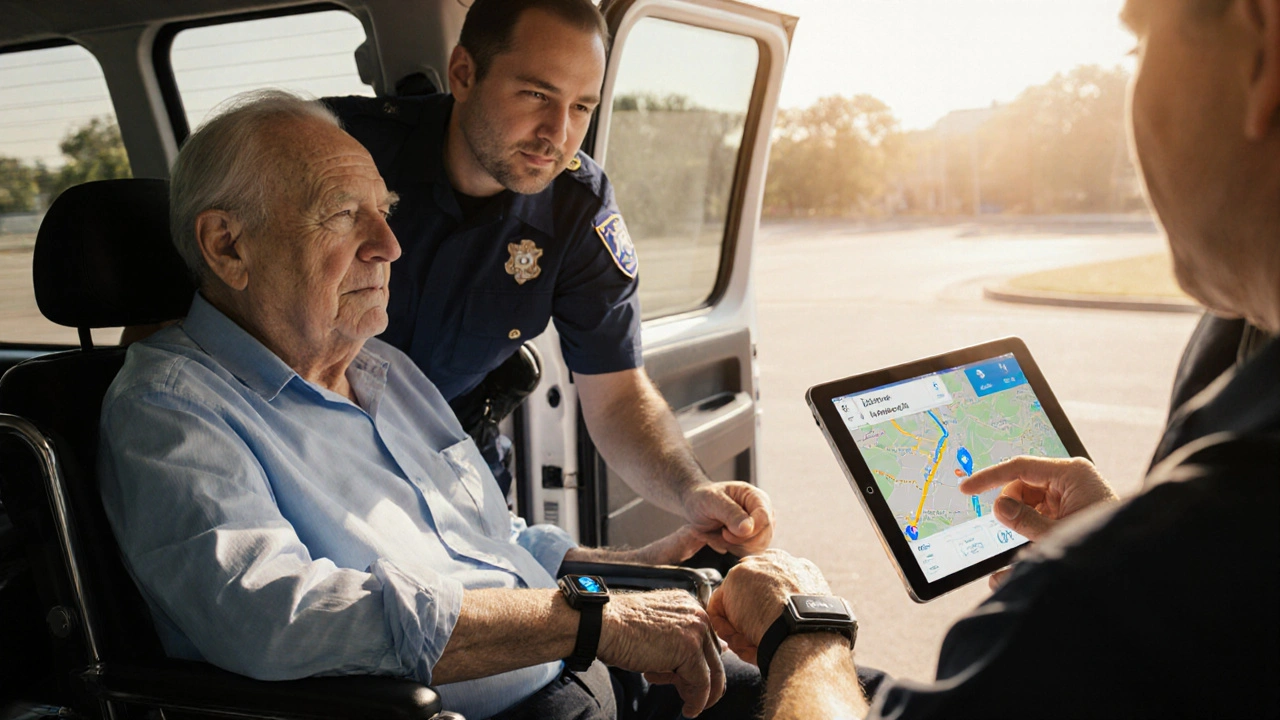
- Nov, 25 2025
- 0 Comments
Patient Safety Technology Used by Medical Escort Services: Apps, GPS, and Alerts
Medical escort services use GPS tracking, secure apps, and real-time health alerts to keep patients safe during transport. Learn how these technologies reduce risk and give families peace of mind.
read more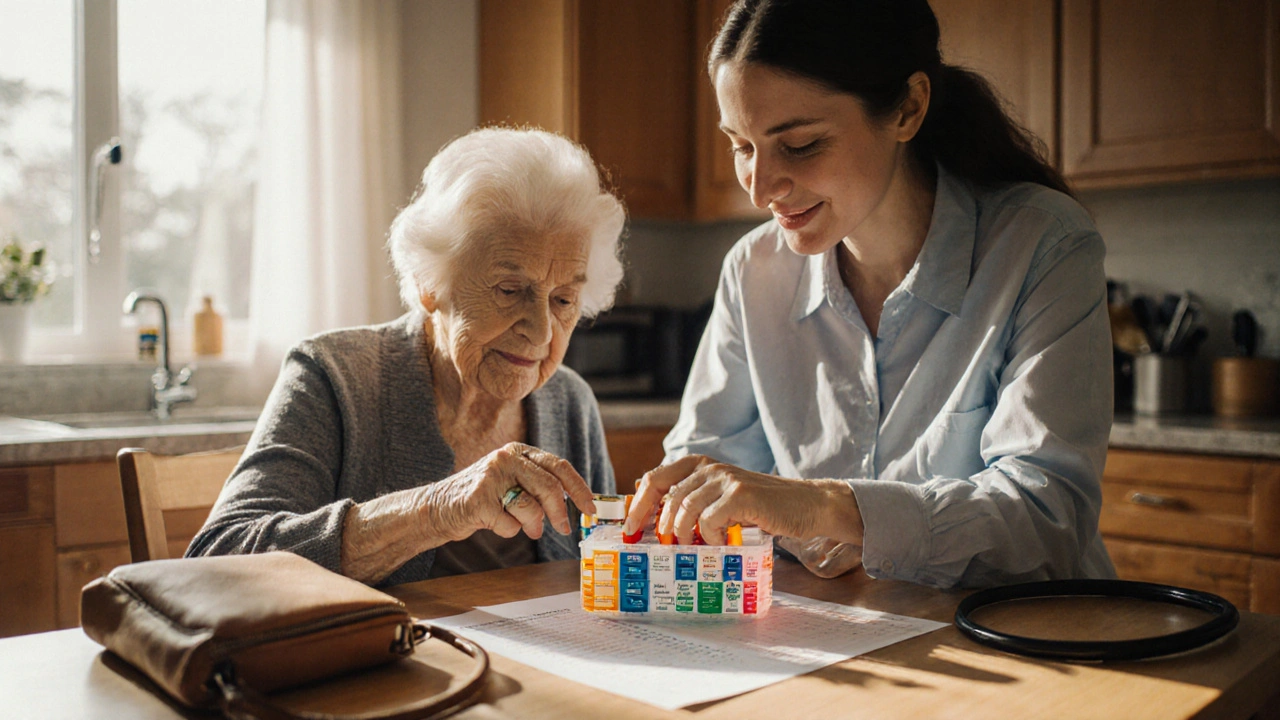
- Nov, 23 2025
- 0 Comments
Medication Management During Appointments: How Medical Escort Services Help Patients Stay on Track
Medical escort services help patients manage medications during doctor visits by verifying doses, preventing errors, and ensuring accurate communication with healthcare providers. A practical guide for seniors and caregivers.
read more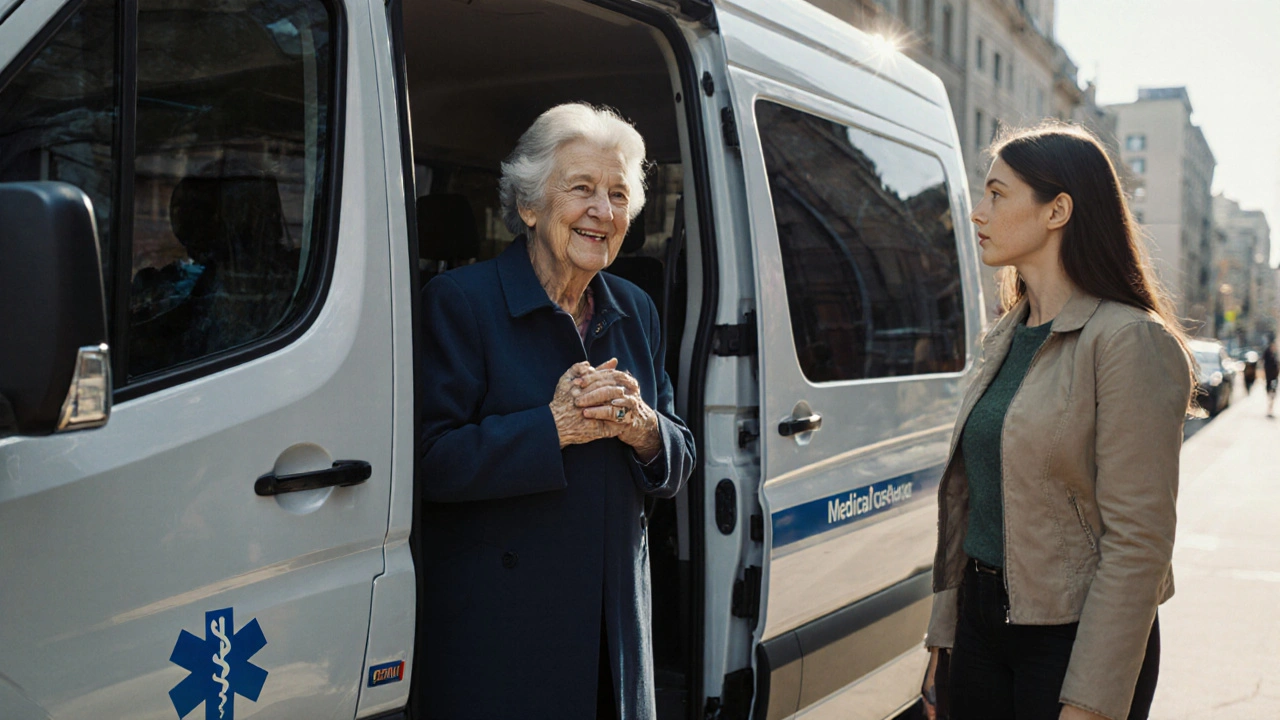
- Nov, 21 2025
- 0 Comments
HIPAA and Privacy: What Medical Escort Services Can Share with Caregivers
Medical escort services must follow strict HIPAA rules when sharing information with caregivers. Learn what details they can and cannot disclose - and how to legally get updates without breaking privacy laws.
read more
- Nov, 21 2025
- 0 Comments
Dementia Care: Best Practices for Medical Escort Services During Appointments
Learn how trained medical escort services improve dementia care during medical appointments by reducing anxiety, improving communication, and ensuring accurate diagnosis through specialized support and preparation.
read more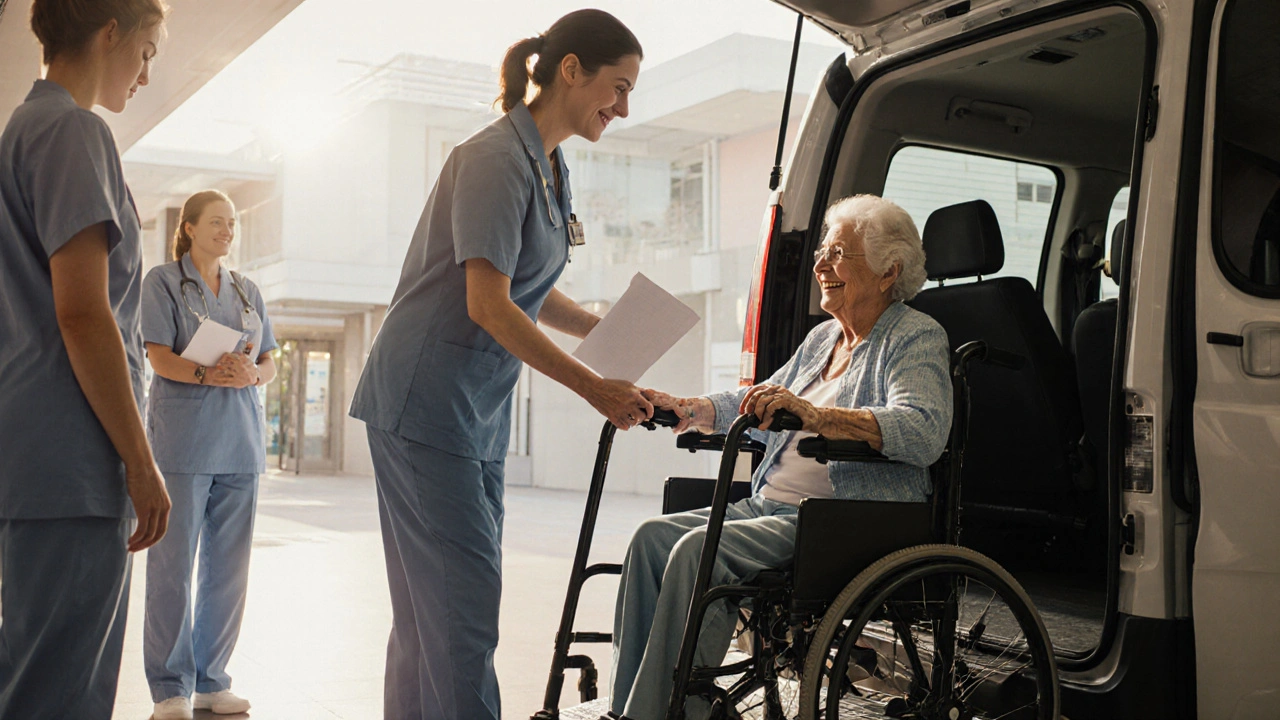
- Nov, 20 2025
- 0 Comments
Hospital Discharge Support: How Medical Escorts Help Patients Get Home Safely
Medical escort services help patients safely transition from hospital to home, offering trained support, transportation, and care coordination-especially vital for seniors and those with limited mobility.
read more
- Nov, 19 2025
- 0 Comments
Hospital Navigation: How Medical Escorts Reduce Stress in Large Medical Centers
Medical escort services help patients and families navigate confusing hospital environments, reducing stress, preventing missed appointments, and improving overall care outcomes. Learn how these quiet heroes make a big difference.
read more